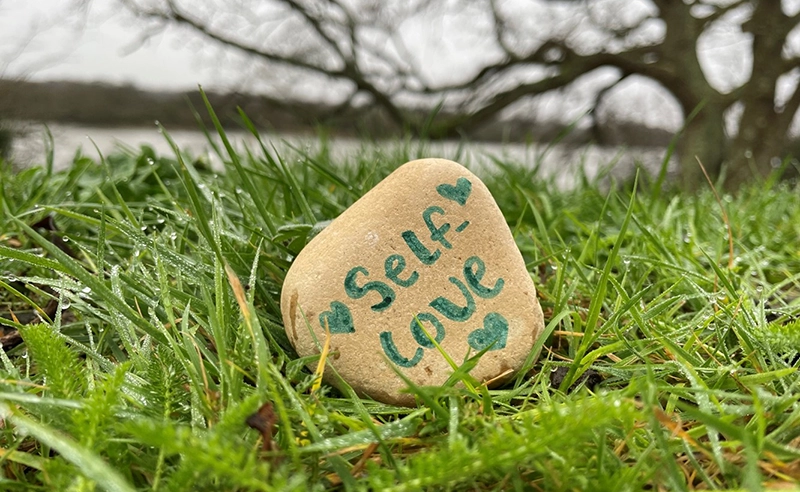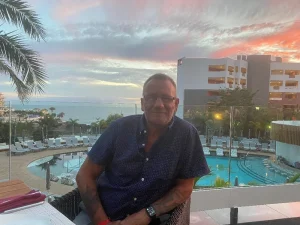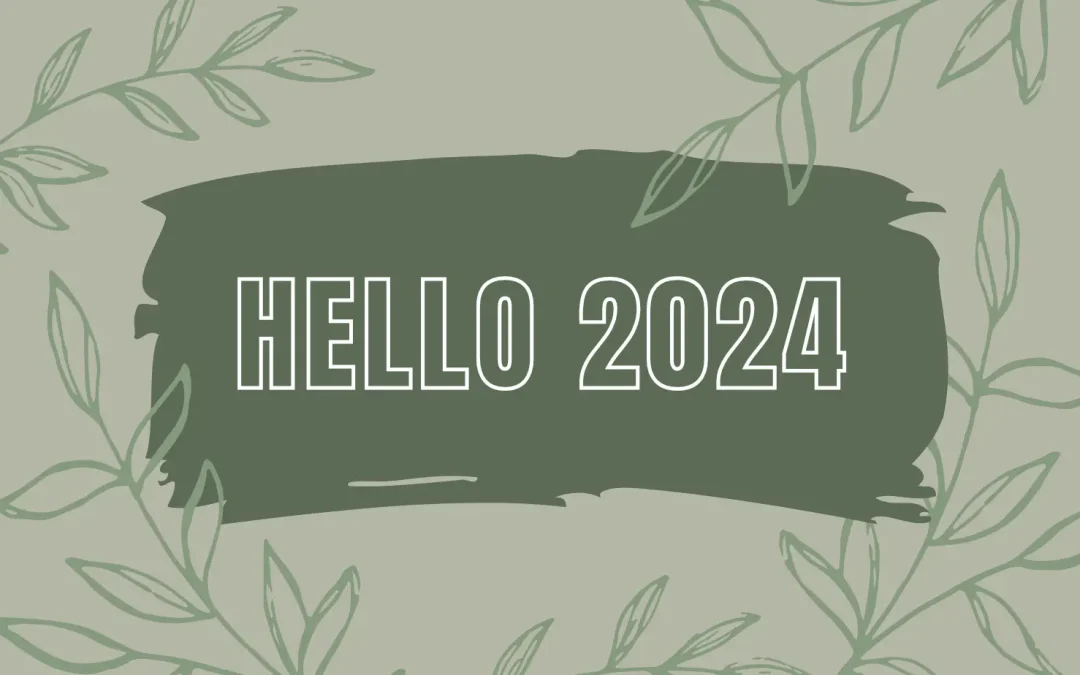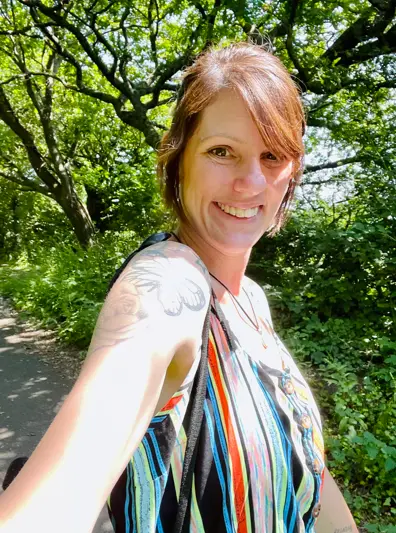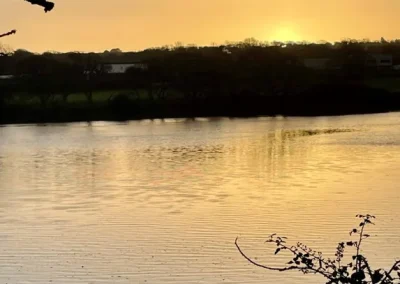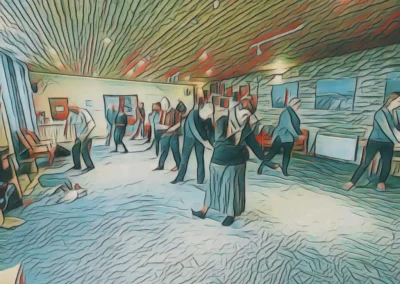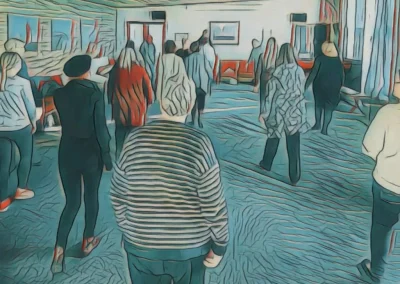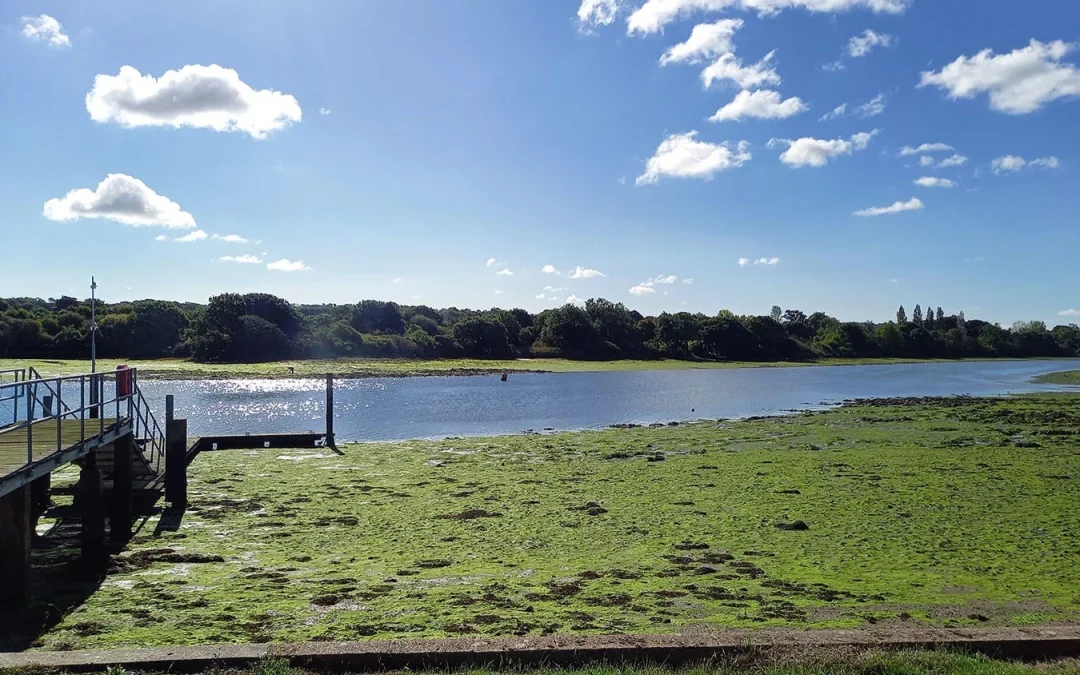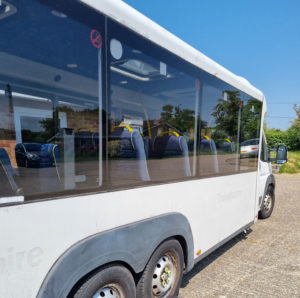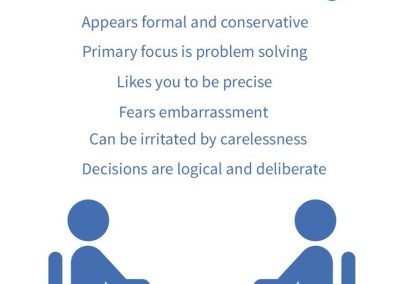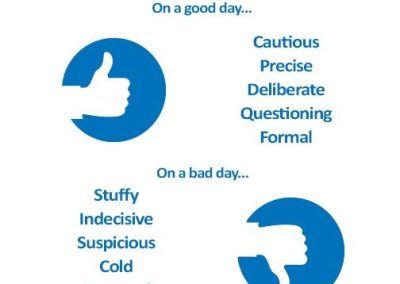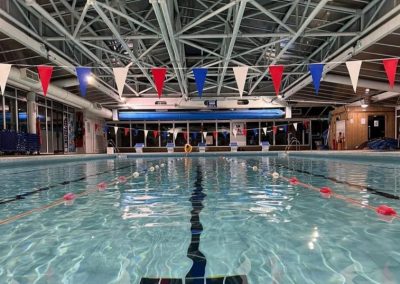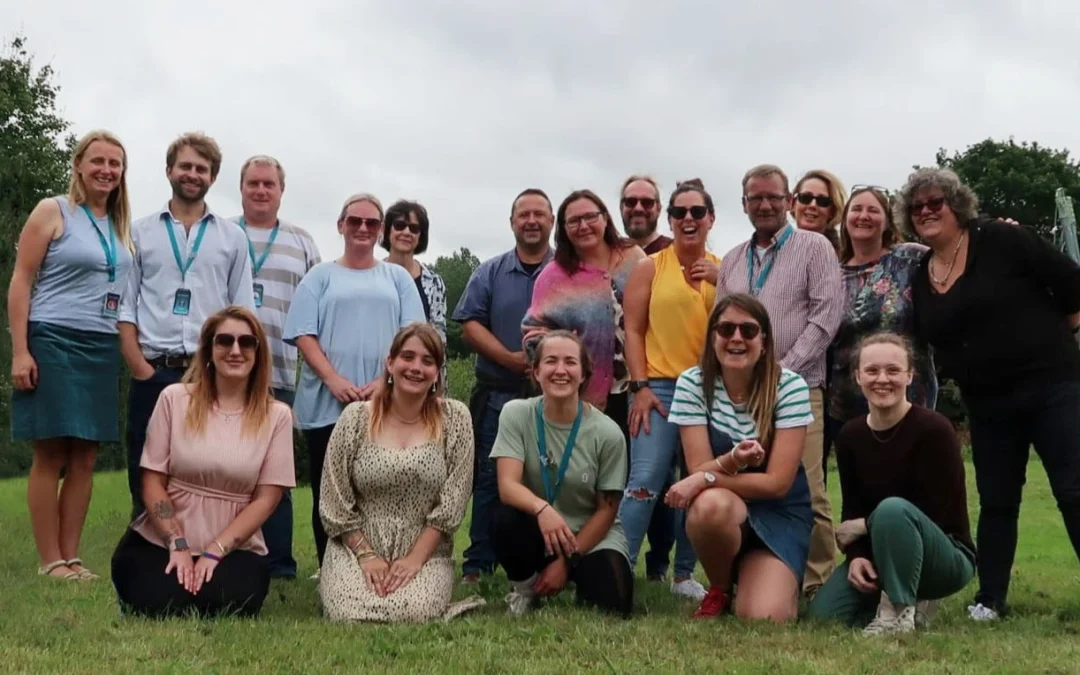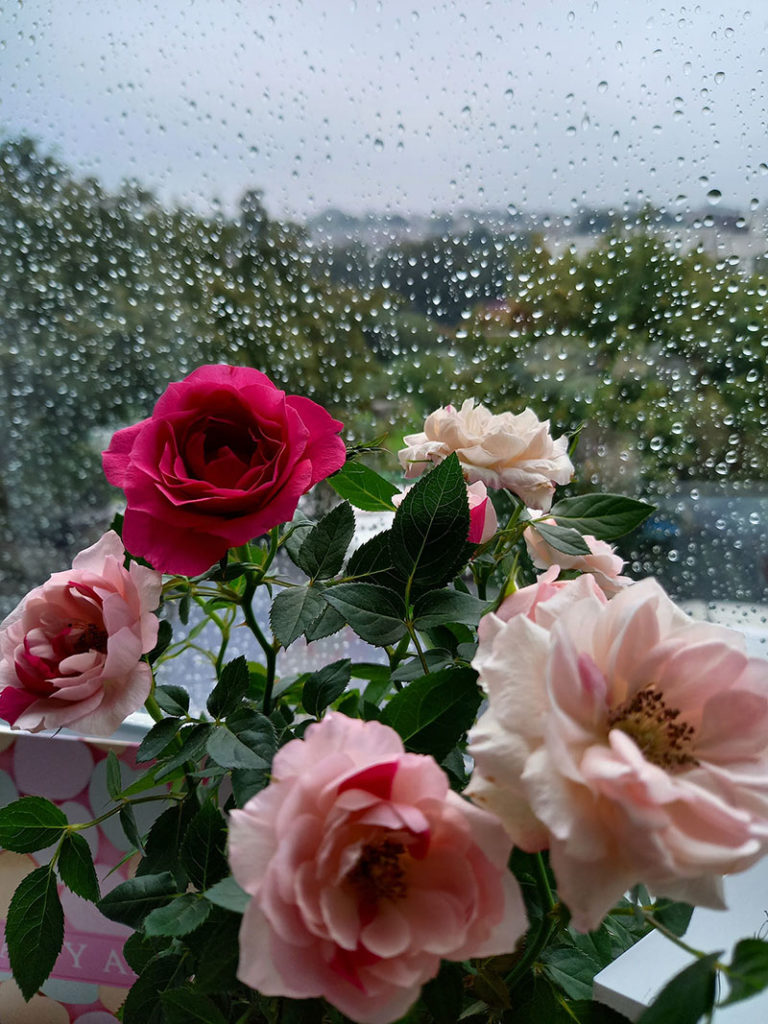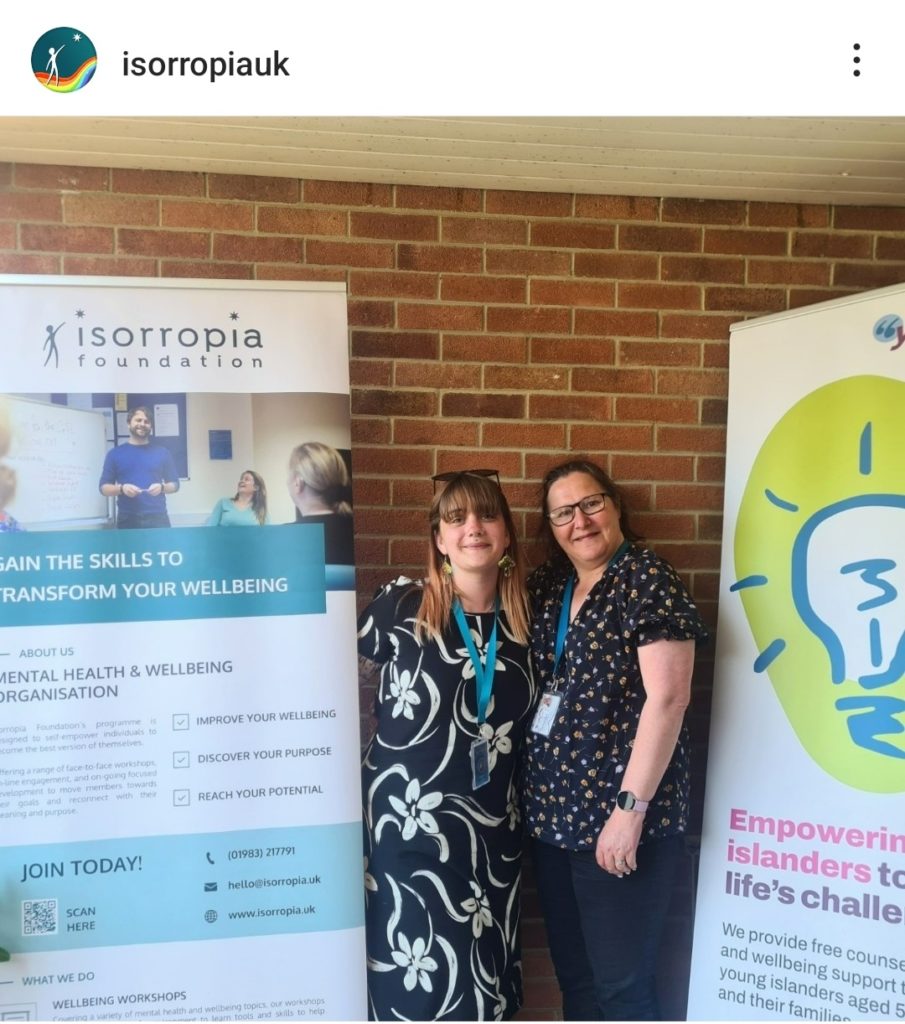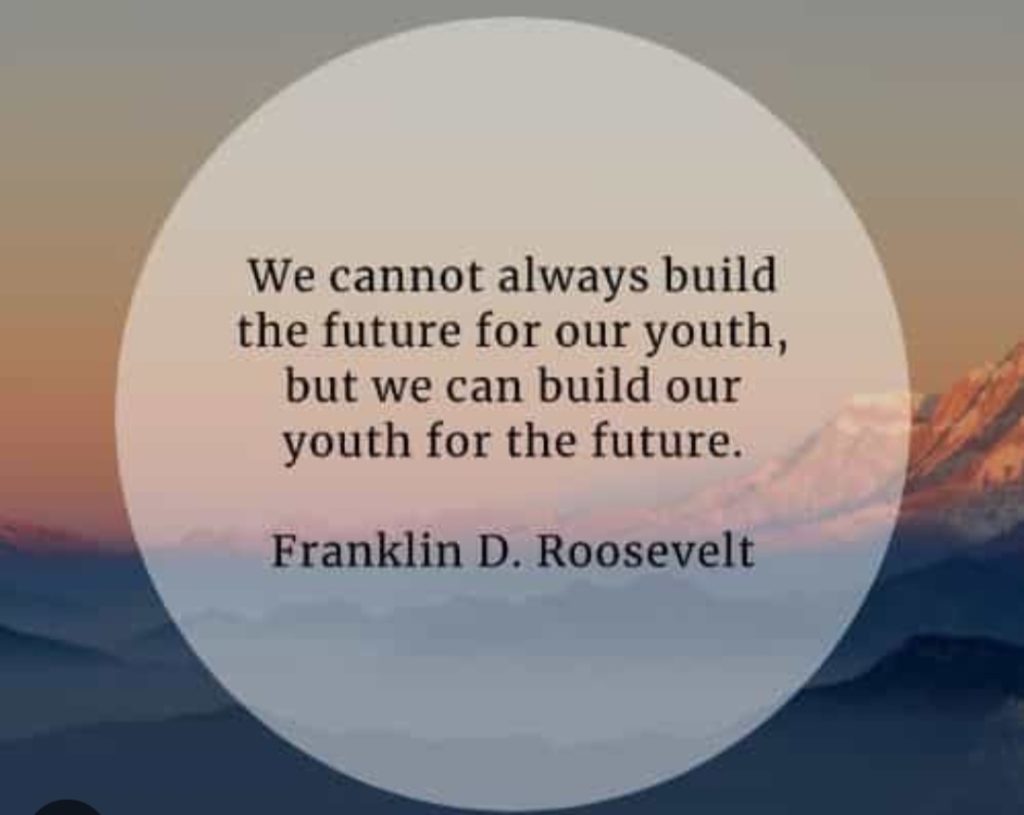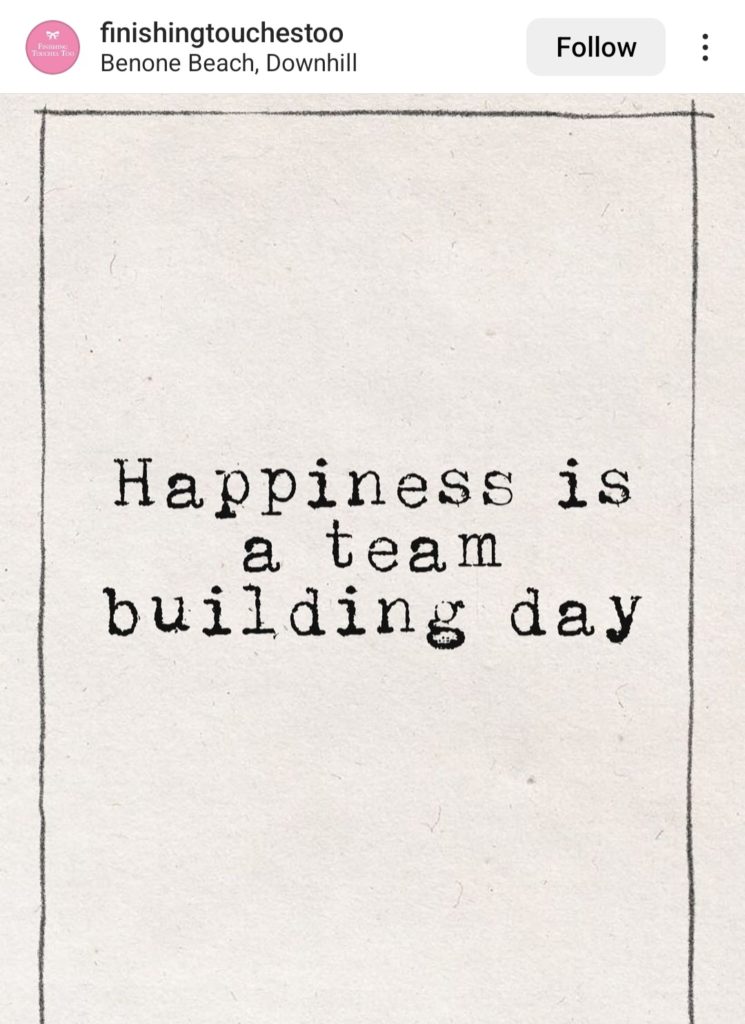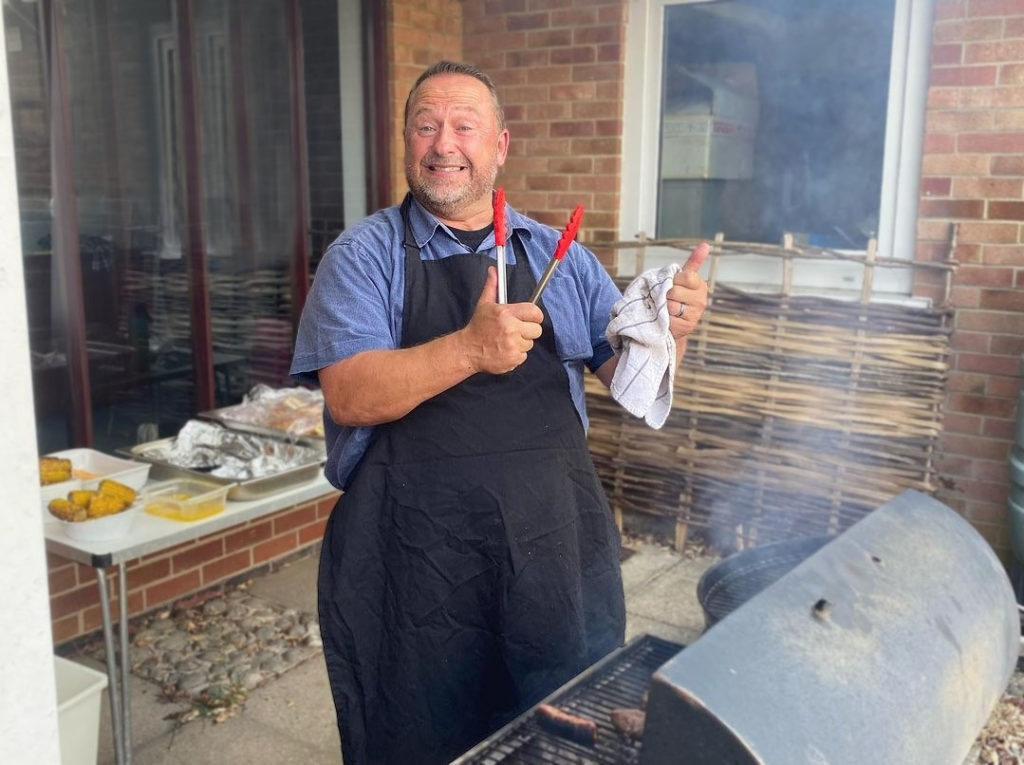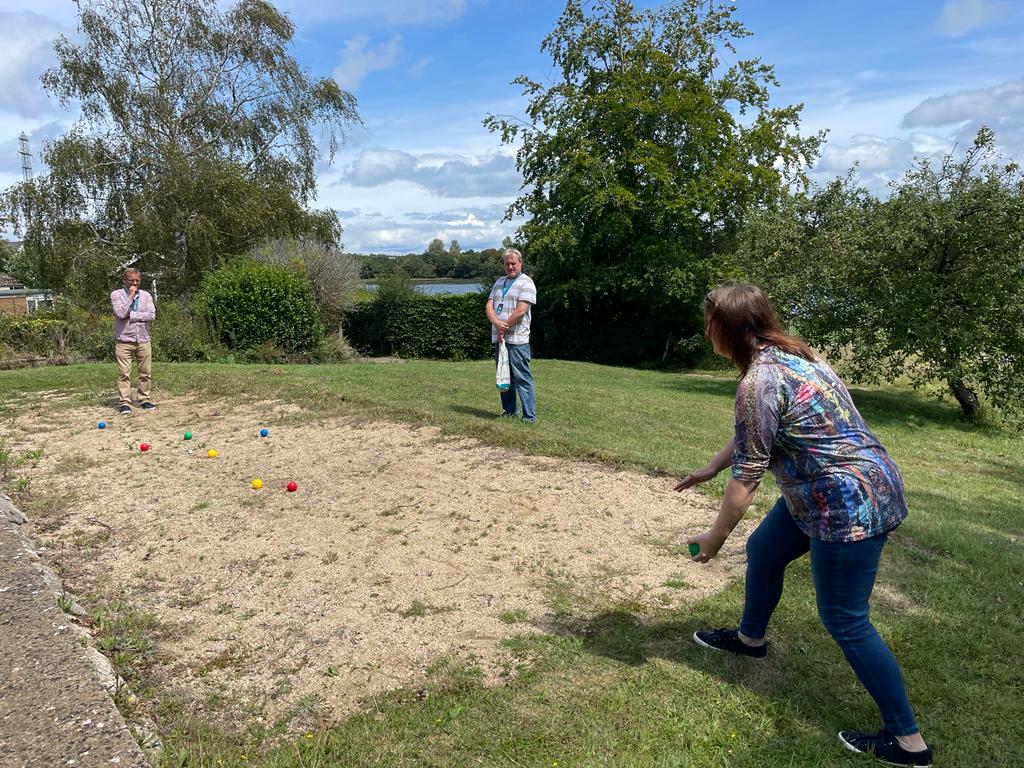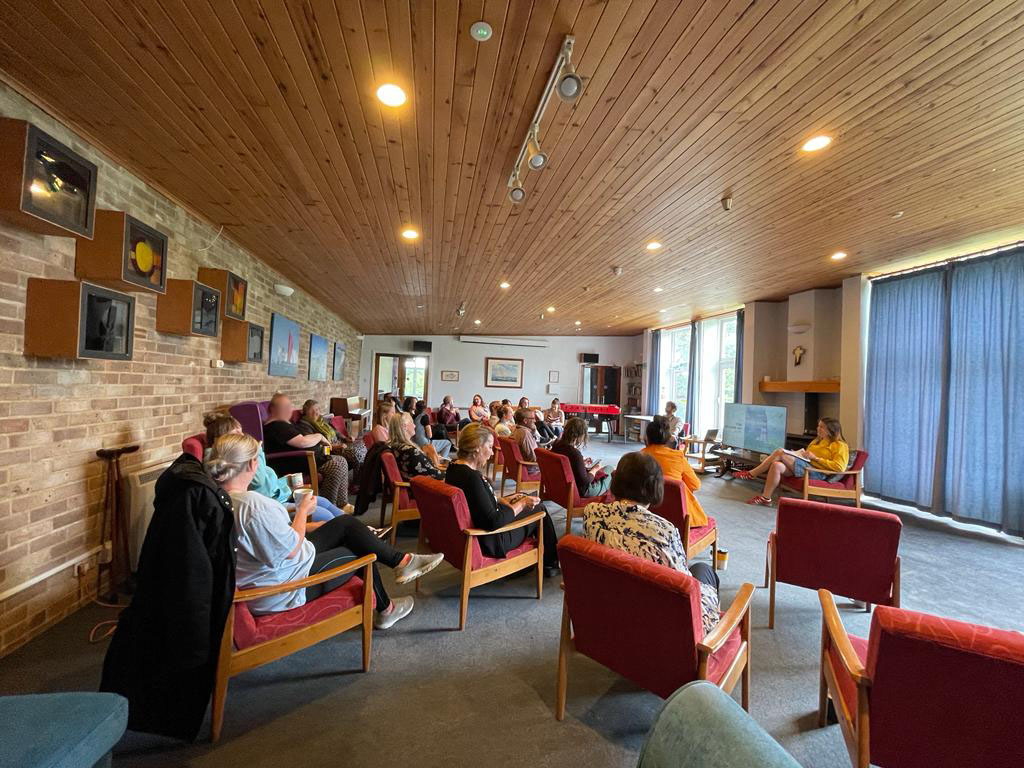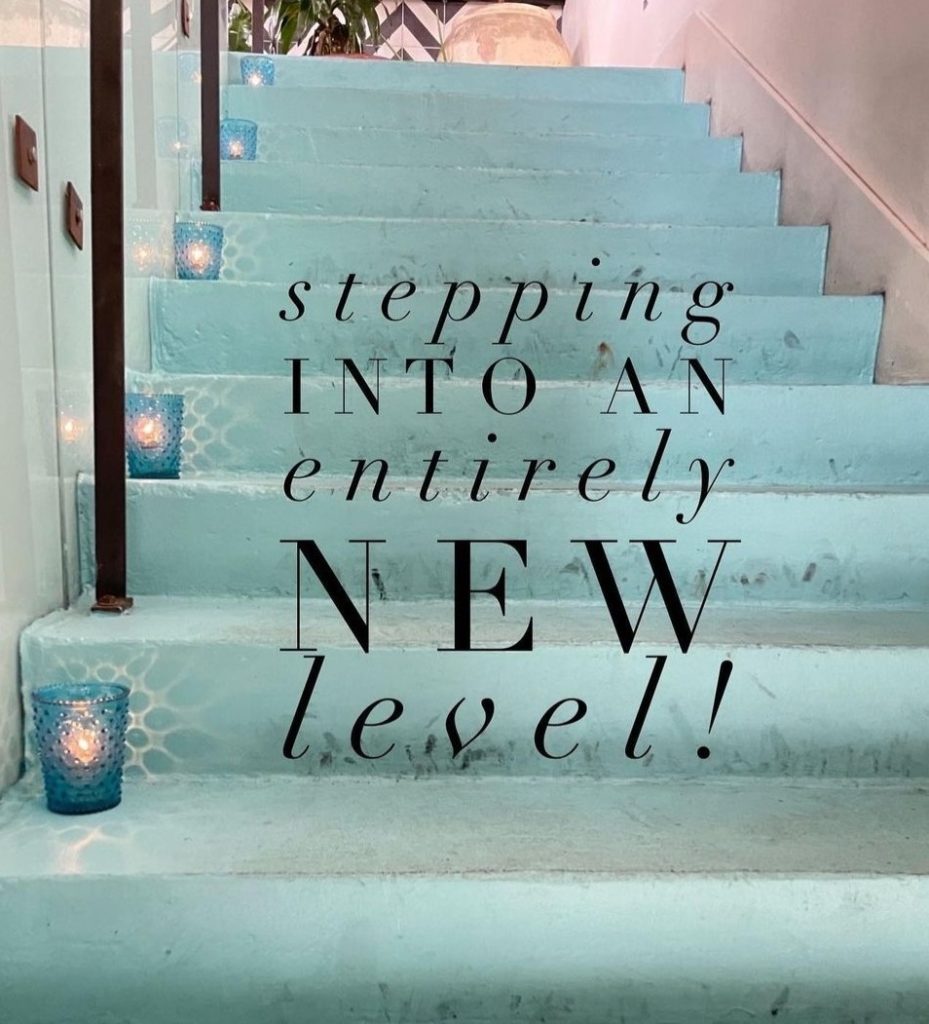
Comfort Zones | Positive Journalling | Inspirational Women
I absolutely love this time of year – the days are getting longer, the weather is brighter, and the flowers are starting to bloom. Here at Isorropia, we have daffodils, snowdrops, and Hyacinth popping up, along with a few rabbits hopping about. March holds a mix of emotions for me. My eldest son was born in March and just turned 19 this year, the same age I was when I had him. Becoming a young mum was challenging. Being a mum is the most challenging job I’ve ever had, but it’s also my greatest accomplishment. March also marks the three-year anniversary of losing my Nan, a very special person in my life, so it’s a time when I know I need to be a bit gentler with myself.
What does March bring for you?
Comfort Zones
At Isorropia, we love exploring the comfort zone. Dwelling on the past for too long isn’t healthy. I used to get stuck in negative experiences, but now I briefly reflect on what I’ve learned and grown from. So, when I talk about my past, it’s with a fresh perspective. Let me share my journey with you.
I’ve faced numerous challenges, and withdrawing was always my go-to. In 2015, amid significant life changes and stress, I fell into deep depression which lead to self isolating at home and many unhealthy coping mechanisms. However, with time and support, I started caring for myself again, stepping outside, walking my dog, and even reopening a new business from home. Little did I know, I had created a new comfort zone, isolating me from social interactions.
For the next seven years, I limited my interactions to dog walks in my neighbourhood, I had no desire for friends. Social events triggered panic, leaving me feeling ashamed and perpetuating a destructive cycle. When COVID-19 forced isolation, I couldn’t understand why others were struggling with isolation; it had been my norm. However, at the beginning of 2022 aspects of my life were changing. My children growing up and becoming more independent. I had made my children my source of happiness and purpose, and when they started to have their own lives, I felt like I was losing my identity as a mother and my mental health started to deteriorate again, which led to a referral to Isorropia.
In my January post, I shared my first experience with Isorropia and the challenges I faced in overcoming my discomfort. Stepping out of my comfort zone felt overwhelming at times, but with encouragement, I persisted. Looking back, I realize that if I hadn’t pushed myself to do those uncomfortable things, I would still be isolating myself and struggling with my mental health. I came to understand that I was the one who had confined myself to my comfort zone, ultimately affecting my well-being, and it was up to me to make the decision to step out of that zone and strive for improvement. Now, I recognise discomfort as growth and navigate through it with self-compassion.
Stepping out of your comfort zone is essential for personal growth and development. In psychology, the comfort zone refers to the familiar activities and behaviours that help reduce stress. Back in 1908, psychologists Robert Yerkes and John Dodson discovered the concept of optimal anxiety – the idea that in order to reach your full potential, you need to push yourself just enough to learn and grow without becoming overwhelmed. It’s all about taking small, consistent steps, setting achievable goals, and facing your fears and emotions head-on.
Breaking down small steps is key to keep progressing. Here’s what my first baby steps looked like:
Goal for this week
I will attend a workshop at Isorropia this week.
What do I want to achieve by making this goal?
Because I want to try and get better.
Step towards this goal
- Book the workshop
- Look at bus times
- Pick what I will wear
On the day…
- Get a shower
- Get dressed
- Walk to the bus
- Play games on the bus to help anxiety
- Walk to workshop
- Get in the door
- Sit through the workshop
- Go home and rest.
Initially, stepping out of my comfort zone led me straight into the fear zone, feeling overwhelmed and retreating to safety. It’s tough but necessary for growth. When I started working at Isorropia, I faced challenges like working in a busy office, interacting with others after isolating for so long, speaking in front of groups, and talking on the phone. It was a real struggle, but running back home wasn’t an option if I wanted personal growth and to pursue a job that brings me so much joy. I’ve embraced discomfort, tears, and insecurities with kindness, acknowledging my struggles and allowing myself to feel. Progress is gradual, but it’s all part of the journey.
So when you find yourself in the fear zone, stay prepared. Feeling scared and anxious is normal when challenging what feels safe. Take things at your pace and be kind to yourself. Each conquered fear is progress. It’s okay to retreat to your comfort zone briefly for a recharge. Just ensure you step back out, even with small actions. Having a comfort zone is completely normal and necessary for replenishing our energy and feeling secure. The key is to not let it hold you back from personal growth.
Comfort Zone Exercise
Create an uncomfortable list, of 10-20 things that make you feel uncomfortable. Pick one thing from that list to try every day. Don’t pressure yourself if something is very uncomfortable, take small steps and work on it over time.
I accomplished most of the things on my list that I made a while ago. Here are some of the uncomfortable items I wrote down in my journal:
- Try a new food
- Go to the shops on my own
- Talk to a stranger
- Make a phone call
- Take my son out for the day
- Read out loud in a group
- Sign up for a course
- Wear new colour of clothing
- Wear a dress
- Go out for a coffee
- Go on the well-being walk.
- Read a new genre of book.
- Visit a new place
- Make a list of my strengths
- Listen to a meditation
- Swap my coffee for a herbal tea
- Write in my journal everyday
- Write down some future goals
- Catch the bus with the dogs
- Attend the two day gift course.
Isorropia has some great workshops to help with goal setting and pushing comfort zones. Some of these are…
- Wellbeing planning.
- The fear of getting well.
Existing members can book these via your BookWhen link or call us on 01983 217791.
If you are interested in becoming a member, please contact us.
Comfort Zone Journal Prompts
- What do you do in your comfort zone?
- What things push you out of your comfort zone?
- How do you feel when you push out of your comfort zone?
- What would you gain if you stepped out of your comfort zone?
- What small steps could you take to step out of your comfort zone?
- If you could get to the growth zone without fear what would it look and feel like?
Positive Journaling
Journaling was a big leap out of my comfort zone, especially when it came to writing positive things about myself. Being honest with myself and expressing my feelings and thoughts through writing was initially uncomfortable. Although shifting from a negative mindset to embracing positivity was tough, it was incredibly rewarding.
Throughout my path to wellbeing, I completed two diplomas in journaling therapy and positive psychology. In both of these courses, I learned about the significance of positivity in our lives and the influence it can have when we journal. Many times, we tend to write about our negative emotions and experiences, which is a great way to heal and move towards wellness. However, it is equally important to document and celebrate our positive experiences, strengths, and moments of happiness.
Our brains are naturally wired to prioritise survival, constantly on the lookout for threats and negatives. However, by consciously focusing on the positives and reflecting on them, we can actually reprogram our brains. Research indicates that dedicating just four to five days to reflecting on the positives can lead to a greater awareness of the good things in our daily lives. Clinical studies have shown that practicing this for fourteen days can result in reduced burnout, improved work-life balance, and increased happiness. And the best part? It only takes 2-5 minutes a day to write these positives down!
The Power of Language
Negative vs Positive Language
Dont give up! | Keep going, you’re doing a great job.
I am not stressed. | I’ve been relaxed and calm in the past period.
Don’t be so rough! | Be gentle.
I’m not doing the best I can. | I can/I will do more.
The results I’ve accomplished are not bad. | I’ve accomplished some good/great results.
I’m not far from achieving my goal. | I’m very close to achieving my goal.
Sorry I’m late. | Thank you for waiting for me.
Sorry that I messed up. | Thank you for being patient when I made a mistake.
Sorry that I talk too much. | Thank you for listening to me.
Sorry that I asked for this favour. | Thank you for helping me out.
Sorry I’ve been distant. | Thank you for being understanding.
I have so much left to do. | There’s more to do, but I’m proud of my progress.
I hate feeling this way. | I am not my feelings, I am the one who feels them.
This is too complicated. | I’ll tackle this from a new angle.
I’m terrible at this. | I’m learning, it’s okay to be uncomfortable.
I made a huge mistake. | What can I learn from this?
Meet the Faces Behind Isorropia: Lisa Fennessy
Lisa is an integral part of our team at Isorropia and has been with us since the very beginning and has conquered many challenges, making her an extraordinary individual. When I first joined Isorropia as a member, Lisa had just started leading workshops, which she openly admitted was outside her comfort zone. Now, Lisa has been successfully running the ‘Reframe programme’. Throughout this journey, she has shown incredible dedication. What truly impresses me about Lisa is her ability to ask the right questions at the right time and her self-awareness in maintaining her own mental wellbeing. I aspire to be as great of a coach as Lisa one day. I asked Lisa about her favourite workshop and what it means to her. Here’s what she said:
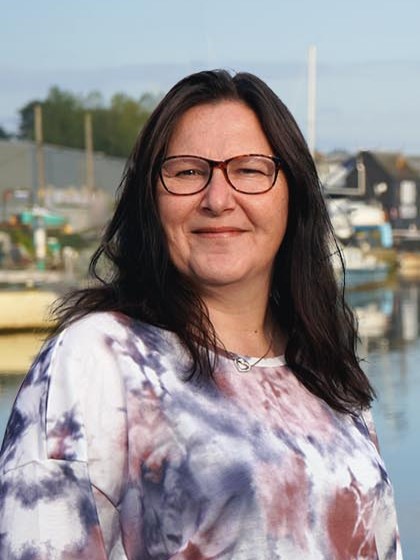
What is your favourite workshop?
My Favourite workshop is the Inner Critic. Overcoming my inner critic was a process that involved cultivating my self-awareness, challenging my negative self-talk, and practicing self-compassion daily. I learnt to dance with my inner critic by becoming aware of its presence; noticing when it was there and the negative thoughts. I started to question these critical thoughts in my head and asked myself if there was any evidence to support them or if they are based on assumptions or distortions. I started to replace negative self-talk with more realistic and compassionate statements and challenges the harsh judgments with affirmations of my worth and abilities. I treat myself with kindness and understanding, especially when facing challenges or setbacks. I acknowledge that everyone makes mistakes, and that failure is a natural part of learning and growth. When I look at the word ‘FAIL’, I say to myself it’s just a…
F – first. A – attempt. I – in. L – learning.
What keeps you well?
What keeps me well is spending time with my family and friends. I also love painting by numbers and listening to music.
What is your favourite quote?
Its ok not to be ok, just don’t unpack and stay there.
What's been happening at Isorropia?
Two months ago, we revealed our thrilling plans to secure Central Government funding, which would enable us to acquire and enhance the tranquil Medina Valley Centre into a Wellbeing Centre of Excellence. This is a significant opportunity that we are truly enthusiastic about! As part of this initiative, we hosted an open day on March 22nd, with a great turnout from the IOW community. It was heartwarming to witness so many individuals participating. Tom and Charlie delivered a presentation to local Isle of Wight residents, where they encouraged volunteers, bank staff, and myself to share our experiences with Isorropia. The impact of Isorropia on people’s lives was truly inspiring to hear. Unfortunately, Sharon an Isorropia member couldn’t attend the event, but she penned a beautiful testimony that was shared at the end of the presentation. It was a message that deserved to be heard by all. Thank you, Sharon!
"Isorropia has been life saving!..."
Isorropia has been life saving! For the first time ever my life is different because I feel safe, supported, understood and valued. From attending the workshops and the gift I now understand so much more about myself, reasons for feeling and being like I am and how to deal with my mental health. I had attended mental health things before throughout my life(I’m 55)and seen a psycologist, and I can honestly say Isorropia and the wellbeing coaches have helped me more than anything ever has. Those things lasted about 8 weeks and you have only just scratched the surface and you are then left often feeling worse. With Isorropia you know someone is always there and they encourage you to attend the workshops as often as you need to and everytime the same workshop can be different as you learn something different each time either from the different wellbeing coaches or the other people on the coarse. All the wellbeing coaches are so honest, open, helpful and understanding and by sharing their stories or to hear them say “I get it”or “I was like that” helps just so much and they have all been amazing and I can’t thank them enough. I felt truly understood like I never have been before. Also the warm hub groups with the amazing things we have got to experience and the walk meet ups give you a place to feel safe and be with others that all have suffered some form of mental health and they ‘get it’ and there is no judgement and I have made some lovely friends. Isorropia is a truly amazing place with amazing people and I feel so lucky that I have been able to participate and go on this journey and have all the help I have and we have this wonderful place on the island that people like myself so desperately need. I would highly recomend Isorropia to anyone struggling with mental health. Thankyou, thankyou, thankyou.
– Sharon
Training
Every Friday, at Isorropia, our team gathers for training. During some of these sessions, we often invite external organisations to come and share information about the services they offer on the island. This way, we can guide our members towards these amazing resources.
This month we met with the Southwest Advocacy Network.
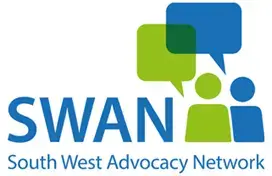
Get your FREE self-advocacy toolkit here!
Swan advocacy provides free self advocacy courses, called ‘Be heard’. The dates for these courses on the Isle of Wight, plus further information, can be found here: https://swanadvocacy.org.uk/iow/
Self-Advocacy is being able to speak up for yourself and tell people what you want and need. People who can self-advocate can make their own complaints and be part of decision making.
SWAN believes that with the right tools and resources anyone can learn to be their own advocate.
International Women’s Day & Project 360
This month, we had the pleasure of celebrating International Women’s Day at our office here at Isorropia. We are fortunate to have a team of incredible women, each one of them amazing in their own unique way. On this day, our wellbeing coach Jamie made sure we were well taken care of with plenty of teas and coffees. Thank you, Jamie, for your thoughtfulness!
I would like to take a moment to recognise an inspirational woman at Isorropia, our wellbeing coach, Hannah. Recently, she stepped out of her comfort zone and took on the 360 project. Hannah has presented in assemblies in front of over a hundred children and spoken in meetings with numerous people. She has overcome her discomfort and done an incredible job. Currently, she is delivering workshops at the Six Form Campus and the Isle of Wight College, helping 16-25 year olds navigate the challenges of mental health and wellbeing. We are incredibly proud of Hannah and all that she has accomplished. Well done, Hannah!
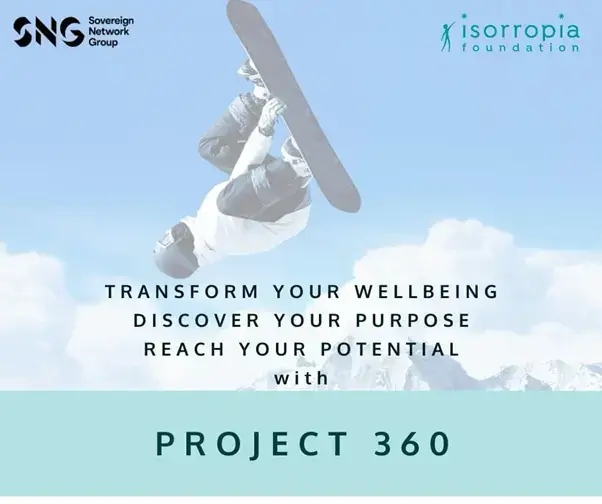
New Team Members
Our team at Isorropia is once again expanding, and our incredible volunteers and bank members are playing a vital role in this growth. I hope that through this blog, you will have the opportunity to get to know our team better.
Ian has recently joined our bank team as a wellbeing coach, and we are thrilled to have him on board. We also have Kieth and Peter, our newest volunteer minibus drivers. Their dedication and commitment are truly commendable. Kitty, Robbie, and Jo-Ann have joined us as volunteer gift mentors, and we couldn’t be happier to have them as part of our team.
Congratulations to our newest team members! I had the chance to catch up with Ian, who expressed his excitement. Keith also shared how much he loves Isorropia and the meaningful connections he has made through participating in our activities.
I hope that over the next few months, you will have the opportunity to get to know them all better. Well done, guys!
See you next month!
Karleigh x

